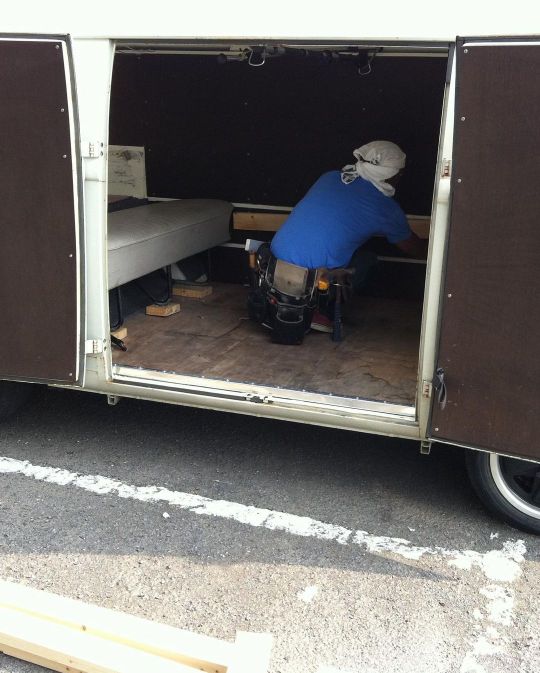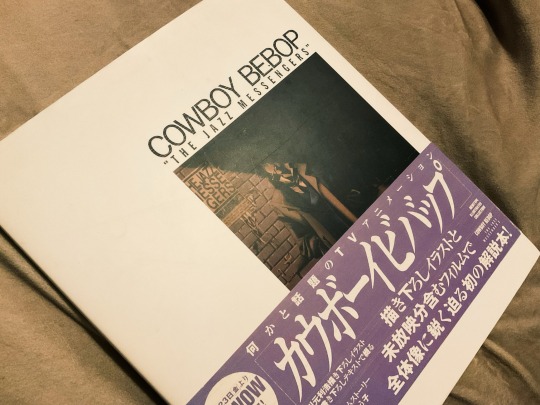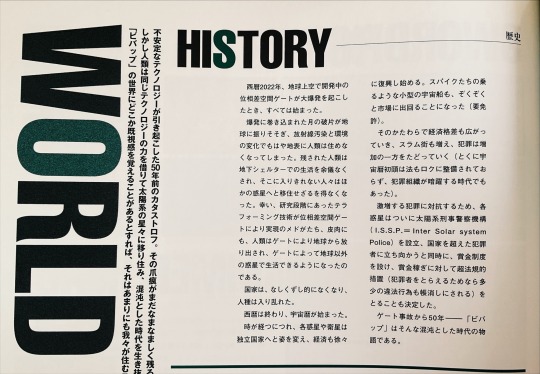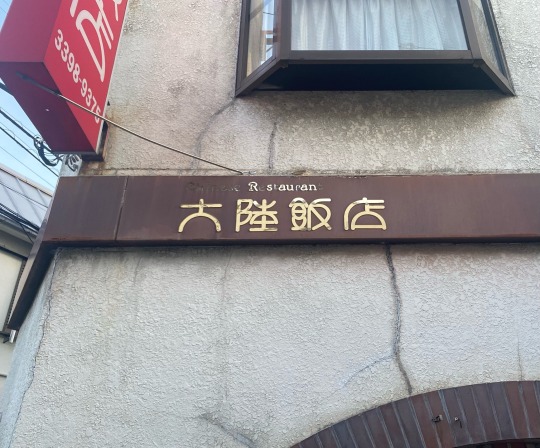#ロクさん
Explore tagged Tumblr posts
Text






'23.8.27 春日大社参道にて
いつものように参道を歩いていると、前方にまったりと座るロップイヤーの牡鹿の後姿が・・。
・・ロクさん、黄泉から出てきた😳?真昼間なのに😨💦・・などと思ってやや恐る恐る近づくと足もあるし、よく見りゃロクさんの特徴ある受け口の度合いもそれほどではなく、どうやら出てきたものではない様子(そりゃそうだ😅)・・近くに長年ロクさんを撮り続けていた写友さんが。
よく似た子ですねぇ、なんて話しながら撮らせてもらいました。
長く奈良公園で住んでいたロクさん、この子はどうか分かりませんが、彼の遺伝子を受け継いだ子たちは多分、今も園内を闊歩しているんでしょうね。
↓昨年、ロクさんが虹の橋を渡ったと聞いた時の投稿です。
#奈良#nara#奈良公園#nara park#春日大社#kasuga tasiha shrine#鹿#deer#ロクさん#roku-san#垂れ耳#lop-eared#晩夏#late summer#photographers on tumblr#natgeoyourshot
150 notes
·
View notes
Photo

【VANLIFEって】 移動販売車になる前のバス 今やあらゆる設備付けた車でVANLIFEとかいう動画たくさんあるけど サーファーの車中泊ってこれくらいで十分だったはずよね #楽園珈琲 #rakuencoffee #vanlife #vwtype2 #ワーゲンバス #ロクさん (楽園珈琲 rakuen coffee@蚊口浜) https://www.instagram.com/p/Cqk7MWMPIT1/?igshid=NGJjMDIxMWI=
2 notes
·
View notes
Text
"In a crazy world, you can live more happily without having any ‘hope’."
- Hiro Sachiya (b. 1936 – d. April 7, 2022) was a Japanese buddhist scholar and a popular contemporary writer of Buddhism.

"The big lie of “making the world a better place”
The world has never been a ‘good place' for its inhabitants. Regardless of the era, the world is always a‘bad place'.
'The three realms are not at ease, they are still like a house on fire', says the Lotus Sutra. The three realms (Ref) are the worlds of greed, colour and colourlessness in which human beings reincarnate through repeated births and deaths. You could think of it as the world we live in.
The Lotus Sutra says that there is no security in this world, that it is full of anxiety, like a house engulfed in flames and burning. What is required now is to learn from this Lotus Sutra and recognise that the world is a house on fire. Politicians are trying to plant the wrong perception in the minds of the people with their nonsense. Thus we must not fall for such tricks to deceive people and must first face up to the fact that the world is always a house on fire.
That is to clarify, therefore to give up.
And you have to take a hard look at the state of the burning house in our time. People who work and have a decent income are all in debt hell. That is the state of a house on fire today.
“Let's admit that the world is on fire. If we live in an age of debt, which is on fire, then don't we need to make more efforts to extinguish the flames?” There are probably people who think this way. However, Buddhism strictly warns against the short-sighted idea that if a fire is raging, it is natural to put it out.
“Get out of the burning house immediately.”
In other words, Buddhism teaches that one should not stay in a house on fire to extinguish it. It teaches that you should leave the fire immediately.
To think "let's make the world a better place" or "let's get rid of debt hell" is, on the contrary, to be attached to this rotten world. The modern way of reading this phrase is, “Don't do that, just leave the world as it is.”
Banks are surviving comfortably, while individuals are exhausted with debt. Look at this current situation. If you stay in the fire forever, the harder you try, the worse the situation gets.
When I say 'don't work hard, don't work hard', some people argue that they bought the flat for their family and cannot afford not to work hard to pay back the loan. The conversation ends there when I say, "Then why don't you just not buy a flat?"
If you remember the basics of living within your income, you don't have to work hard and you won't be taken in by the burning house called the world. The landscape of our times is that everyone has forgotten these basics and as a result is groaning.

“狂った世界では「希望」など持たない方が楽しく生きられる。”
― ひろさちや (1936年 7月27日 - 2022年 4月7日) は、日本の仏教思想家。多数の一般向けの解説書を執筆。
「世の中をよくする」という大ウソ
世の中が、そこに住む人たちにとって「良いもの」であったためしは無い。時代を問わず、世の中というのはいつも「悪いもの」なのだ。
「三界は安きことなし、なお火宅のごとし」と法華経の中には書かれている。三界(参照)というのは、人間が生死を繰り返しながら輪廻する三つの世界(欲界、色界、無色界)のことだが、まぁ、わたしたちが生きている世界と考えればいいだろう。
その世界には安心などなく、炎に包まれ燃え盛る家のように不安に満ちている、と法華経はいうわけである。
いま求められているのは、この法華経に学び、世の中が火宅だという認識を持つことだ。政治家は能天気な御託を並べ、間違った認識を植えつけようとしているが、そんな手練手管に乗ることなく、いつの時代も世の中は火宅だということを、まず正視しなければならない。
それは明らめることだ。
[註: 仏教の世界では「諦める」を「明らめる」と書く。つまり、あきらめるとは断念するということではなく、事実をはっきり見ることであり、現実を直視し、それをありのままに受け入れるという意味にほかならない。]
そして、この時代の火宅のありようをしっかり見極めることだ。きちんと働いて収入のある人がこぞって借金地獄にいる。それが現代の火宅である。
「世の中が火宅であることは認めましょう。いまが借金時代という火宅の時代ならば、その業火を消すべく努力を重ね���必要があるのでは?」そう考える人はいるだろう。しかし、火が燃え盛っているなら消火活動をするのが当然だ、という短絡思考は、仏教が厳に戒めるところである。
速やかに火宅を出よ。
すなわち仏教では、火宅にとどまって消火活動などするな。すぐさま火宅から出てしまえ、と教えているわけだ。
「世の中をよくしよう」「借金地獄を無くそう」などと考えることは、逆にこのロクでもない世の中に執着することになる。「そんなことはせず、世の中なんてものはうっちゃっておけばいい」というのが、この文言の現代流の読み取り方なのだ。
銀行はぬくぬくと生き残り、個人は借金でヘトヘトになっている。この現状を見てください。いつまでも火宅の中にいたら、頑張れば頑張るほど、状況はますます悪くなるばかりなのだ。頑張って収入が上がったとしても、もっと高い買い物をローンでしたら、高い金利を払うことになる。
わたしが「頑張るな、頑張るな」と言うと、自分は家族のためにマンションを買ったから、ローンを返すためには頑張らないわけにはいかない、と反論する人がいる。「だったら、マンションなんて買わなければいいじゃないの」というと、会話はそこで終わる。
収入の範囲で生活する、という基本を忘れずにいたら、頑張る必要などないし、火宅に取り込まれることもない。誰もがその基本を忘れた結果、あえいでいるというのが、この時代の風景なのだろう。
133 notes
·
View notes
Text

Something different today! The term 五臓六腑 [ごぞうろっぷ] comes from traditional Chinese medicine. Its literal meaning is the five viscera and the six internal organs—organs as a TCM concept; not analogous to the anatomical organs. But 五臓六腑 can also mean guts/innards more generally, or figuratively, what's inside your heart. (Though in this case, it's just the name of a nice sushi place.)
Breaking the kanji down by theme:
五 means 5. It's read いつ, いつつ, or ゴ.
六 means 6. It's read む (e.g. む.つ, むっ.つ, むい), ロク, or リク.
臓 means entrails, viscera, or bowels. It's read はらわた or ゾウ.
腑 also means viscera or bowels. It's also read はらわた, or フ.
So let's take a closer look at 臓 and 腑. They both mean guts, they're both read はらわた, and they both use the radical meat-moon ⺼, plus (as you may have noticed if you're an absolute genius) another kanji that can mean storehouse. Yes!
蔵 means storehouse, or to possess, own, or hide. It’s read くら, おさ.める, かく.れる, ゾウ, or ソウ.
府 can mean storehouse, though it more often means urban prefecture or government office. It's read フ.
So, Flesh + Storehouse = Organs. Good mnemonic!
But is there a difference between 臓 and 腑? In modern Japanese, only 臓 is common, unless you're into traditional Chinese medicine. In that context, though, the difference is that 臟 zàng refers to "solid" organs, which are yin, while 腑 fǔ refers to "hollow" ones, which are yang. (Again, not organs in the anatomical sense; sometimes they're described instead as functional entities or systems.)
Anyway, I am going to try to end this post before I overstep my rudimentary understanding of this subject, but 五臓六腑 comes from the Chinese zàngfǔ (simplified: 脏腑; traditional: 臟腑). Zàngfǔ is the backbone of the TCM concept of how the body works. Its literal meaning is hollow and solid organs, or "all the organs."
And this kind of construction is common in kanji vocab: use two contrasting descriptors to refer to everything in a category or to position along a spectrum. For example:
男女 [だんじょ] (men + women) = all genders
老若 [ろうにゃく] (old + young) = all ages
大小 [だいしょう] (big + small) = size; all sizes
凸凹 [でこぼこ] (convex + concave) = bumpy
加減 [かげん] (increase + decrease) = adjust, moderate
苦楽 [くらく] (pleasure + pain) = the good and bad (of life)
高弱 [こうじゃく] (strong + weak) = level of strength
好き嫌い [すきぎらい] (like + dislike) = preferences (usu. food) and so on.
P.S. - Incidentally, はらわた is more commonly written 腸. This character also shares the same general entrails/viscera meaning, but often refers more specifically to bowels/intestines. (And fun fact: The name 牛腸 Gochō (cow + bowels) was the impetus for me starting this blog!)
90 notes
·
View notes
Text
/やりたい時に、ベストと思える人と
タイミング合う時って案外ないですよね
かといって、やれればいーかーでやりとりするとロクなやつにつかまらんし
今まさにそんな感じw
42 notes
·
View notes
Text
マジで人間は暇になるとロクな方向にいかない。職場でも会社に難癖つけてくるの暇な社員ばっかだろ。経営者も暇だとセミナーいって変な知識を持ち帰り、会社を掻き回しがち。適度に忙しくしてるの大事だわ。
Xユーザーの千代目さん
17 notes
·
View notes
Photo

(Xユーザーの碧砂ロク🦜新刊委託中さん: 「ニヤニヤ教授 ニヤニヤ #ブルアカ #BlueArchive https://t.co/9gv4Z70uPN」 / Xから)
24 notes
·
View notes
Quote
昨日、X見てたんです。元Twitter。 そしたらなんか圧迫面接についてめちゃくちゃいっぱい語られてたんです。 で、ネットで調べてみたらなんか「圧迫面接はチャンス!」とか書いてあるんです。 もうね、アホかと。馬鹿かと。 お前らな、「応募者のストレス耐性を知るため」ごときでパワハラとレピュテーションリスク冒してんじゃねーよ、ボケが。 精神的苦痛だよ、精神的苦痛。 なんか「最後まで笑顔を絶やさないこと!」とかアドバイスしてるし。圧迫面接するような会社に入らせるのか。おめでてーな。 吉野家コピペはさておき、私は「圧迫面接するような会社はとっとと辞退しろ」派です。おもな理由は、 ・自社を選んでくれた応募者に失礼。入社後も大切に扱ってくれなそうだし、顧客や取引先にも失礼な態度をとって不興を買ってるのでは? ・ストレス耐性など、圧迫面接でなくても確認する手段はいろいろある。わざわざネガティブな印象を与えるような方法に固執する、考えが古いままの会社なのでは? ・そもそもストレス耐性を持った人を厳選する必要があるほど、パワハラ的なコミュニケーションや強いストレスが蔓延する劣悪な職場環境なのでは? といったところでしょうか。 あと、圧迫面接された記憶って結構根強く残りますからね。圧迫を受けた人がいつか別の会社で出世して、「圧迫面接してきた会社の営業を受ける立場」になるかもしれないわけで。所詮、そういった配慮もリスクマネジメントもできてない、ロクでもない会社なんですよ。
新田 龍 / X
164 notes
·
View notes
Quote
入れたい候補がいなければ自分が出るのが民主主義だし、まあそれは原理的過ぎるとしても、日ごろから地域を考えて「出したい候補」を育てておくのが民主主義である。いざ選挙の段になって「ロクな候補者がいない」と言うのは、自身も含めてロクな有権者がいないことをあらわしている話でしかない。
XユーザーのOGAWA Kandaiさん (via leomacgivena)
26 notes
·
View notes
Text


Excerpt from Cowboy Bebop: The Jazz Messenger - History (translation below)
HISTORY 西暦2022年、地球上空で開発中の位相差空間ゲートが大爆発を起こしたとき、すべては始まった。 爆発に巻き込まれた月の破片が地球に振りそそぎ、放射線汚染と環境の変化でもはや地表に人類は住めなくなってしまった。残された人類は地下シェルターでの生活を余儀なくされ、そこに入りきれない人々はほかの惑星へと移住せざるを得なくなった。幸い、研究段階にあったテラフォーミング技術が位相差空間ゲートにより実現のメドがたち、皮肉にも、人類はゲートにより地球から放り出され、ゲートによって地球以外の惑星で生活できるようになったのである。 国家は、なしくずし的になくなり、人種は入り乱れた。 西暦は終わり、宇宙暦が始まった。 時が経つにつれ、各惑星や衛星は独立国家へと姿を変え、 経済も徐々に復興し始める��スパイクたちの乗るような小型の宇宙船も、ぞくぞくと市場に出回ることになった(要免許) そのかたわらで経済格差も広がっていき、スラム街も増え、犯罪は増加の一方をたどっていく(とくに宇宙暦初頭は法もロクに整備されておらず、犯罪組織が暗躍する時代でもあった)。 激増する犯罪に対抗するため、各惑星はついに太陽系刑事警察機構(I. S. S. P. = Inter Solar System Police)を設立、国家を超えた犯罪者に立ち向かうと同時に、賞金制度を設け、賞金稼ぎに対して超法規的措置(犯罪者をとらえるためなら多少の違法行為も帳消しにされる)をとることも決定した。 ゲート事故から50年、「ビバップ」はそんな混沌とした時代の物語である。
HISTORY
It all began in the year 2022, when a catastrophic explosion ripped apart a hyperspace gateway(*1) under construction in Earth's orbit.
Caught in the blast of the large explosion, pieces of the moon rain down onto the surface of the earth, rendering the planet uninhabitable due to widespread environmental destruction and radioactive contamination. What remained of humanity was forced to live underground in shelters. Those that could not find room in these shelters, were forced to migrate off-world. Luckily, the terraforming technology that was still in its research phase gained traction after the hyerspace gateway incident. Though it was the destruction of the gate that had forced humans from Earth, it was thanks to this very same technology that humans were able to establish a new life on planets beyond Earth.
Nations ceased to exist, and the races of old Earth began to mix.
And so ended use of the Western Gregorian calendar in favor of the Space calendar(*2).
Over time, each planet and satellite became its own independent nation and the economy began to recover. Smaller spaceships, like the one used by Spike and his crew, flood the market in droves (license required).
At the same time, economic inequality was rampant, there were more slums, and crime continued to rise (especially in the early years of the Space calendar when there were few laws in place and criminal organizations thrived).
In response to the surge in crime, the I.S.S.P (Inter Solar System Police) was established on every planetary body to fight against these interplanetary criminals. At the same time, a bounty system was implemented that granted bounty hunters extrajudicial power (which allowed the execution of any illegal acts committed in the process of apprehending criminals).
The story of Bebop takes place during this chaotic era, 50 years after the hyperspace gateway incident.
*1: I think a closer translation for the Japanese word for this gate, 位相差空間ゲート, would be phase shift gate, as that seems to be the scientific phenomenon referred to with the Japanese name, however, since your average viewer likely doesn't know what ‘phase shifting’ is, I understand why translators would go with a more localized term like ‘hyperspace’ or ‘astral gate’.
*2: I couldn’t find any references for how 宇宙歴 is translated in the English version. It’s possible the term was avoided altogether if it never showed up in dialogue.
#anime#art books#cowboy bebop#japanese animation#shinichiro watanabe#japanese translation#old anime#90s anime#space cowboys#newtype magazine#old school#oldanimeedit#classic anime#animeedit#dailyanime#90s#90s aesthetic#japanese language#learning japanese#japanese vocabulary#translator#azula
25 notes
·
View notes
Text
あさぎまだら

柿の実も赤く熟す秋後半、圃場に咲くマリーゴールドの花にふわりと舞い降り蜜を吸う蝶はアサギマダラ。


俊敏なアオスジアゲハなんかと比べると、こちらはのらりくらりとした飛び方だけど、意外にも長距離移動を特徴としていて、日本の本州から台湾や香港まで飛ぶらしい。写真の個体も遠くから飛んできたのだろうか?まあ手入れ不十分で汚い圃場だけど、それで良ければゆっくり休んでいくがいいさ。あ、カマキリ沢山いるから気をつけて(笑)。

この蝶、人に対する警戒心が緩く、近くまで寄れることもあってか最近は人気があるらしい。ここ伊豆南部の下田でも割と多く飛来する場所があって、地域おこしのアイテムにしようと画策しているようだ。別にそれ自体にどうこう言うつもりはないが、この蝶を寄せたり繁殖させるために特定の植物を人為的に大量に植えたりするのはやり過ぎだ。ホタルの里を作ろうと自然の川にカワニナを大量に播いたりする地域もあるけど、後先考えず目先の利益のために安易に自然を改変し、ロクな管理もせずハザードさせて手に負えなくなり、結局後世にそのツケを回す。そんな山ほどの失敗事例から学ばず同じ事繰り返すのはどれだけ愚かと思うねぇ。そもそも貴重な生物はたまに出会うから価値を感じるのであって、ウジャウジャいたら魅力どころか弊害の方が多くなるだろうことは容易に想像が付くだろう。その結果、人が暮らしにくくなり過疎が一層深刻になるなら本末転倒だしね(呆)。
#田舎#田舎暮らし#里山#自然#森林#生き物#生態系#虫#昆虫#蝶#アサギマダラ#浅葱斑#地域おこし#秋#伊豆#下田市#countryside#rural life#nature#forest#creature#ecosystem#insect#butterfly#chestnut tiger#fall#autumn#izu#shimoda#japan
12 notes
·
View notes
Quote
ブームになると、これまでに店を支えてくれたお客様は遠のきがちです。 ゆっくり楽しめる時間が好きだったのに、忙しそうでロクに会話もできなくなったり、対応が雑になったりしてなんだか気持ちが離れることもあります。 人によっては、「自分がこっそり好きだったものがたくさんの人に知られた」という心理的な理由で興味を失ってしまう人もいますよね。 そんなお客様たちが離れていかないような努力も必要になります。 忙しいからと言って無碍に扱ったりまともな対応ができなくなれば、あっという間に誰もいなくなってしまい、ブームが過ぎ去った後には焼け野原しか残りません。 ブームが来た時ほど、足元を見て地盤を固める。 この意識は本当に大事です。 流行に流されやすい業界もそうですが、普段そんなことの少ない業界だと慣れていない分余計にやらかしてしまう可能性は高まります
もしも自分の店がブームになってしまったら、必ず「足元」を見ろ! - ページ 2 / 2 - まぐまぐニュース!
17 notes
·
View notes
Quote
よく「マニュアル通りにしか出来ないのか」とか「マニュアル通りの対応しかできないのか」と言う人がいますが、そういう人に、マニュアル外の対応を(サービスで)してあげると、後々、ロクな事にならないんだよ。僕知ってるよ。
Xユーザーのおちょごさんさん: 「よく「マニュアル通りにしか出来ないのか」とか「マニュアル通りの対応しかできないのか」と言う人がいますが、そういう人に、マニュアル外の対応を(サービスで)してあげると、後々、ロクな事にならないんだよ。僕知ってるよ。」 / X
14 notes
·
View notes
Text


Today, a Chinese restaurant because I LOVE THIS TYPEFACE! So roundy. Not sure which sign I like more so I put both.
大陸 【たいりく】 means continent. Here it refers to continental China.
大 means big or large. It's read おお-, おお.きい, -おお.いに, ダイ, or タイ.
陸 means land. It's also an alternative way to write 六 six. It's read おか, リク, or ロク.
飯店 【はんてん】 means Chinese restaurant.
飯 means (cooked) rice or meal/food. It’s read めし or ハン.
店 means store or shop. It's read みせ, たな, or テン.
I should mention that 飯店 isn't a generic term; you mostly see it in names of Chinese restaurants. You're more likely to hear 中華(料理) 【ちゅうか(りょうり)】 Chinese food or 中華料理屋(さん) 【ちゅうかりょうりや(さん)】 Chinese restaurant.
Also, let's talk about 中華 【ちゅうか】, literally, "middle" + "flower." It's technically a pretty name for China, but in practice, it tends to mean Chinese food or Chinese restaurant. Just ask Google Images:

So why 中華 and not 中国 【ちゅうごく】? Well, you can say 中国料理, usually to refer to Chinese food the way it's made in China. By contrast, 中華料理 implies that it's adapted for Japanese tastes. But my feeling (grain of salt) is that 中華料理 is used colloquially across the board, to the extent that if you hear a non-native speaker say 中国料理, you'd probably assume that it's a mistake, not that they're trying to be specific.
It's also my experience that a Chinese place that wants to advertise its authenticity is more likely to label itself more specifically and use the name of a region. Which is especially understandable when you consider the huge diversity of Chinese cuisine, but that's probably part of the reason I don't see 中国料理 used that often.
23 notes
·
View notes
Quote
兵庫県の斎藤元彦知事の話 先日、行きつけの飲み屋で最近定年した兵庫県の元職員(おそらくかなり末端)の話を聞く機会があったけど、「斎藤知事叩かれてるけど、県の上の方もロク��もんじゃねぇ。アイツら働かねぇ。ここまで叩いても金(収賄)と女の話が出ないからパワハラで叩くしかねぇんだ」(続く)
XユーザーのぶQ🍵お絵描きれんしゅうちうさん: 「兵庫県の斎藤元彦知事の話 先日、行きつけの飲み屋で最近定年した兵庫県の元職員(おそらくかなり末端)の話を聞く機会があったけど、「斎藤知事叩かれてるけど、県の上の方もロクなもんじゃねぇ。アイツら働かねぇ。ここまで叩いても金(収賄)と女の話が出ないからパワハラで叩くしかねぇんだ」(続く)」 / X
6 notes
·
View notes
Quote
テレビ出演で気をつけなければいけないのは、常連さんの来店離れです。 一気に新規客が来店することでいつものように常連さんが来店できなくなってしまうと、その期間が長くなればなるほど、違うお店を見つけて常連さんがいなくなってしまうケースもあります。 テレビ出演がきっかけ��半年間ご新規さんの予約で席が埋まってしまい、常連さんが来店できなくなったために常連さんがどんどんと減っていき、半年後にはテレビ出演前の売り上げより下がったという話も聞いたことがあります。
テレビに取り上げられるとロクなことにはならない…飲食店経営者が「行きたいお店になるな」と説くワケ 一度行ってみたい需要で流行る店は危険 (2ページ目) | PRESIDENT Online(プレジデントオンライン)
7 notes
·
View notes